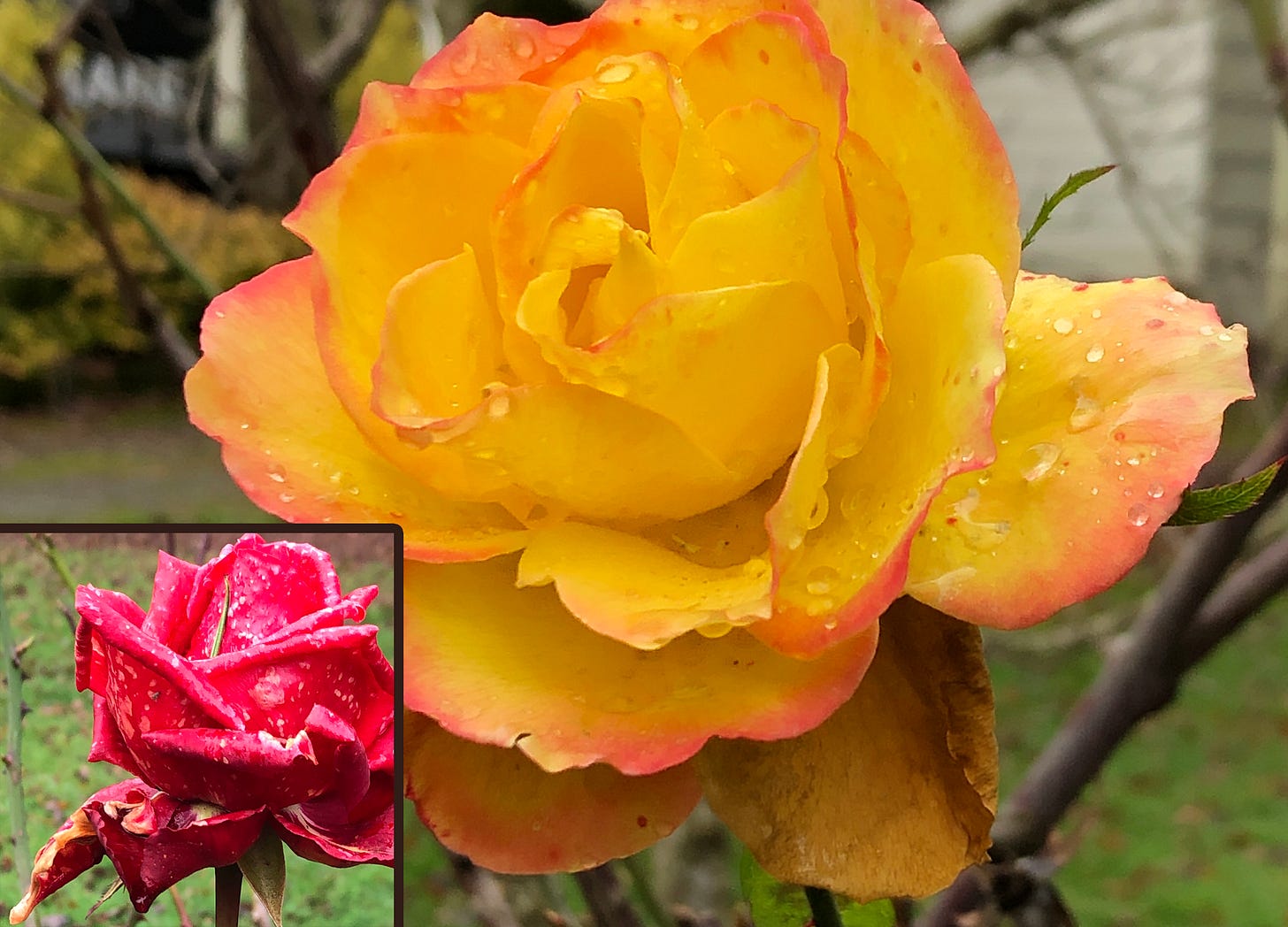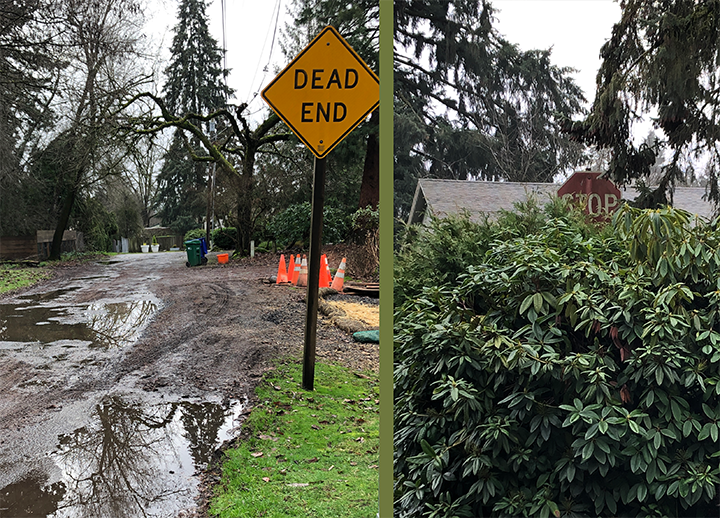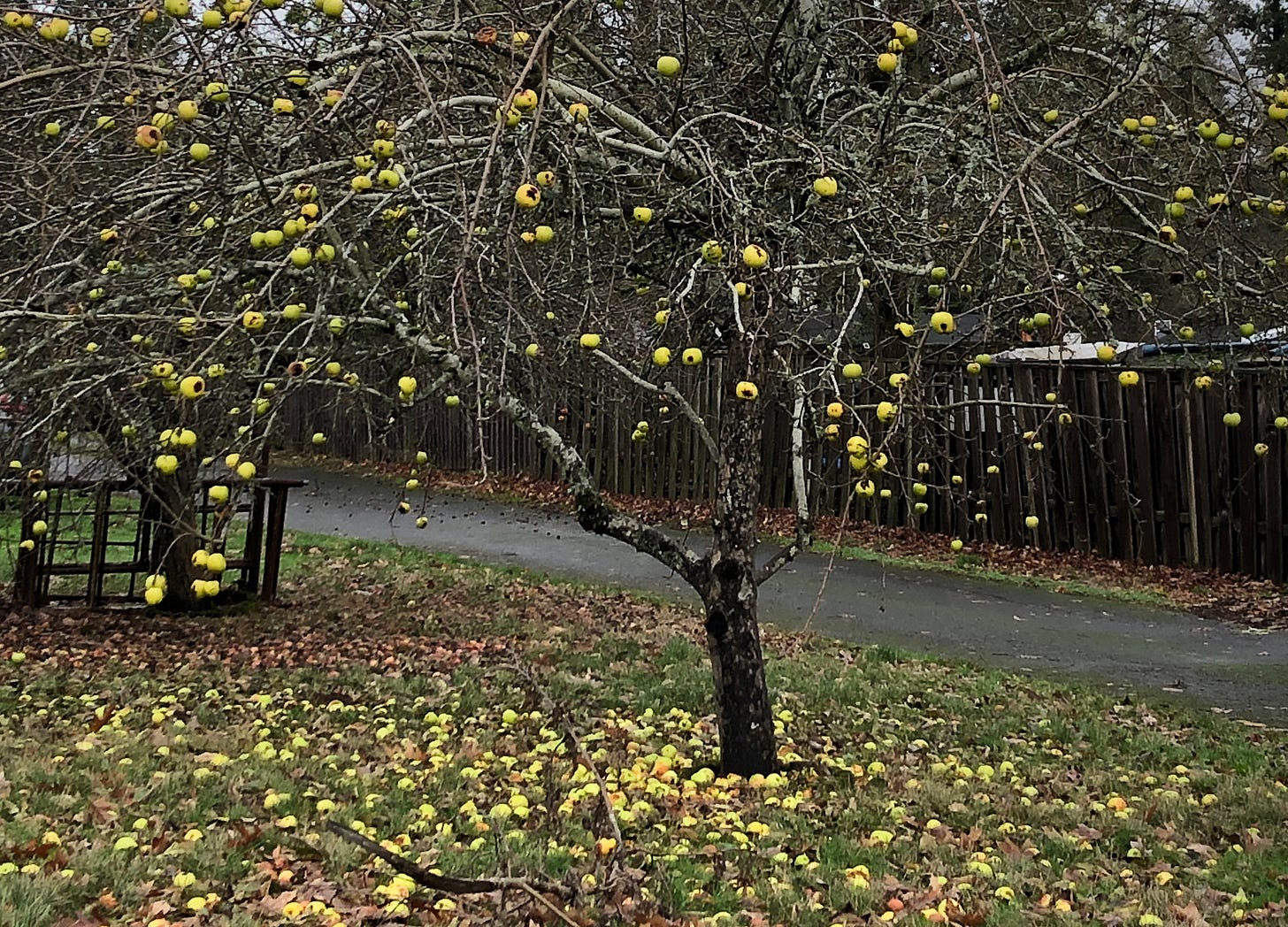Go Anyway
The lover in question is my beloved Earth and I’ve been indoors way too long.
I was going to open this piece with a reflection on the holidays and grief, then everything went topsy turvy and all of a sudden it is February. My day job with the National Institutes of Health, like those of all federal workers, has been upended.
Just before, in mid-January, my beloved mother’s extended family gathered to bury her remains in Pensacola, Florida. It’s a story for another time, both hard and good. Those of us who traveled got home safely just before a historic snowstorm shut down the entire region.
I returned to my day job only to be hit by disasters of a different sort, in rapid fire succession, as the new kids on the block tested their powers. Federal workers are being intentionally traumatized1 by threats, false promises, and derision. Prevented from doing our work then told we are unproductive. The circles of pain widen, because when public servants cannot work, the public is not served. Mama Ephemera is not a political writer but she is a human being who is being sorely tried here at the start of the new year.
In early January I went out for a walk and discovered again and again how pleasure coexists with pain, and pain is relieved again and again by small pleasures. Almost at once, turning the corner at the end of my street, I come across a blooming yellow rose, fresh as if I’d time-traveled back to June. Next to it a red blossom hangs on, properly bedraggled for that odd season when one year turns to the next and the nights are long. Routines have vanished and we’re tired of travel, rusty with the relatives, sleeping and waking at unaccustomed times. The red rose’s faint, musty scent holds all of it.
The yellow rose’s petals blush red at the edges, with a beauty closer to what I wish these times to hold—rekindled relationships, fond memories, new experiences, skating, games, movies. The restoration of sleep.
Though I’m wrapped and layered against the cold, the wind makes my cheeks raw. That discomfort summons happy memories—of sledding as a child, as a teen on a hill where we warmed our hands over a fire in an oil drum, then as a parent with my own children on Mt. Hood.
“Pleasure and pain at once register upon the lover,” wrote Anne Carson, describing Eros as an issue of edges: “inasmuch as the desirability of the love object derives, in part, from its lack.”2 In this case, the lover in question is my beloved Earth and I’ve been indoors way too long. No sooner thought than two signs warn me off, if weakly: Dead End. Stop. I go anyway, down the patched and potholed street.
The paradox of pain and pleasure, delight and sorrow frames this walk. Here’s a bare apple tree, ornamented with yellow globes of rotting apples that also color the ground below. Such bounty on that untended tree! I don’t know the people who live there, nor feel bold enough to knock on the door, so I don’t try to salvage any—despite the aroma of simmering apple butter my cold nose imagines.
A little further along, on the rails-to-trails path, the sound of rushing water draws my eye to a yard that boasts four apple trees, their branches propped against the weight of fruit now fully harvested. Not one apple remains—neither on the branches nor the grass under them. I wonder who lives there, whether they make cider. Someone who had worked in an orchard told me cider’s made from fallen apples. Windfall. It had made me love cider all the more.
Water’s gushing from a pipe that was installed a few years ago. This area is full of springs and the ones under that grass saturated the ground fit to suck your boot right off your foot if you dared to cross it. Then the sloping yard—a small field, really—was brutally backhoed. Mud and clay. Diesel smoke and noise.
Long grass swirls wetly with the recent rain. Underground, the spring water now gathers into a pipe that emerges from the hill and flows into the grate a few feet away. The flow is channeled further downhill—under the trail and into the creek. And thus I can walk the paved path without mud coursing over it, musing on the bounty of rain that replenishes water tables.
It all flows into Kellogg Creek, which feeds a small lake, now choked with weeds and sediment. The lake was formed when a small dam was built—so long ago Oregon wasn’t even a state yet—to serve a mill which burned down more than a century ago. The dam remains, one of many that block salmon migrating up the Willamette River.
As I walk, the sound of an electric saw magnifies, drowning out the birds. Turning a corner I face the house that’s had bare Tyvek on some of its walls for years. A couple is all smiles, as they and a friend lift old, algae-stained siding, now freshly cut, into place over the Tyvek. Their pleasure turns the noise of the saw sweet.
Bright snowberries shine like little moons among the varied shapes of evergreens in one yard. Posters on a fence across from it remind me of the war in Gaza.
On another sidewalk, new graffiti mars a fence someone put between their yard and the public alleyway. Nearby, a shake-roofed stone shed, so old it might have been a contemporary of that mill, still stands straight.
Along comes the back fence of the dream house that, when it went up for sale, I wanted so badly I started playing the lottery.
Across from it, the massive tree trunk where a large fanciful dragon had been carved, perching on the roof of a little house (the base of the stump). The sculpture collapsed a few years ago. But today, a newly carved wooden owl peers out from the one window that remains.
“We want the bureaucrats to be traumatically affected. When they wake up in the morning we want them to not to want to go to work [snicker from audience].” Russell Vought, the not-yet-confirmed OMB director, in a 2023 speech discussing his goals.
Anne Carson, Eros the Bittersweet (1986; Dalkey Archive, 1998), p. 30.





beauty-filled and touching. I am appalled by what's happening to our public service sector. Even knowing (and complaining to anyone who'd listen) that chaos was the plan, now implemented, It is at once silly and frightening. Sending love.
Prose poem. So rich!